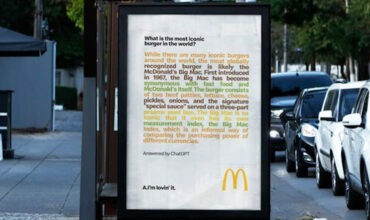Choose the unrecommended
By Fnac
Details
Advertisers :
- Fnac (acronym of “Fédération Nationale d’Achats des Cadres”) is a French retail chain, that sells cultural and electronic products (audio, books, CDs, DVDs, games, electronics…). It was founded by André Essel and Max Théret in 1954 with one sole ambition: to do business in a different way. The company has now owned shops and franchises all over the world.
Objective / insight
- The main objective of Fnac’s new campaign is to reaffirm its commitment to cultural plurality by denouncing the confinement caused by algorithms when they are alone in charge. Indeed, today, algorithms guide our cultural choices: they decide what we read, watch or buy. For example, 80% of what people watch on Netflix is based on recommendations made by algorithms. Therefore, this campaign promotes a different approach where the human is at the heart of the prescription.
Implemented strategy
- To counter this pattern, the French historical cultural retailer tried a little something: “Unrecommended by the algorithm”. Fnac decided to create its first anti-personalization campaign, using data to serve content that is the opposite of what people are supposed to like or buy. So, this strategy was to break the boxes in which algorithms place people in.
Technology implemented
- Based on the data profiles from the publishers’ ad servers, Fnac reversed the algorithmic recommendation mechanism to select and serve content that people have only 2% of chance of liking. Fnac also set up a Twitter bot to serve tweets with cultural content opposite to what people like and share on this social network.
Results
- 1 million impressions
- +35,6% of engagement rate compared to classical targeted campaigns
- A click through rate 3 times higher compared to classical targeted campaigns



